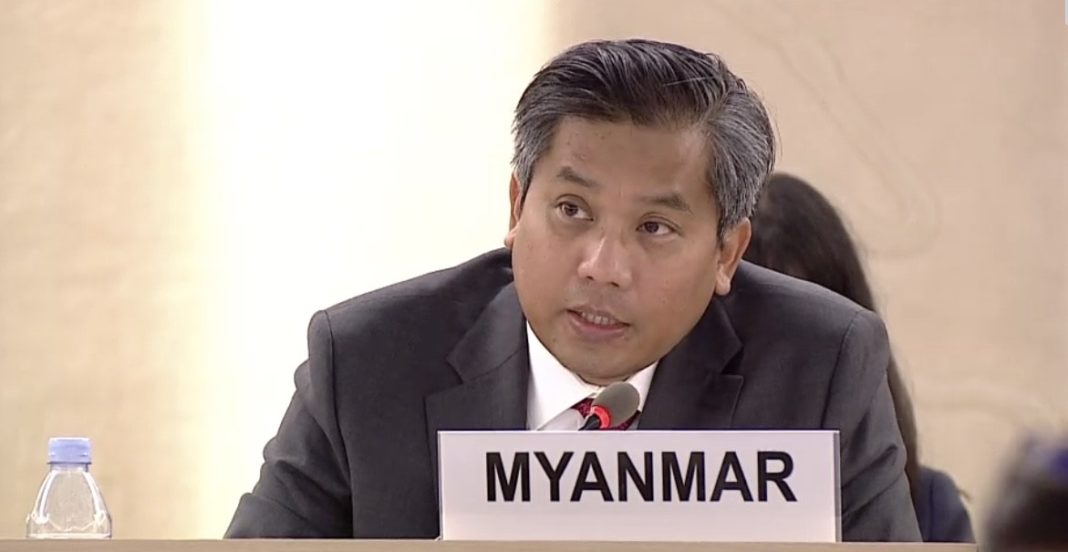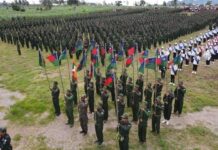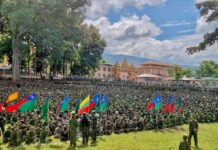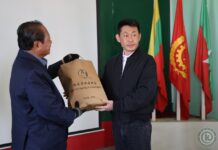On 22 June 2020, at the 43rd session of the United Nations Human Rights Council in Geneva European Union (EU) tabled the draft resolution on “Situation of Human Rights in Myanmar,” which Myanmar rejected it.

The Permanent Representative U Kyaw Moe Htun stated that the EU’s draft resolution would in no way contribute to finding solutions to overcome the challenges Myanmar is facing, but would rather impose serious impediments in the efforts to bring peace, stability, and development for all the peoples across the country.
In his five-point rebuttal he said: Firstly, selective targeting of country-specific resolutions should be avoided and a constructive, non-confrontational, non-politicized, non-selective and dialogue-based approach, and in a fair and equal manner should be implied. Secondly, UN using huge resources for establishing multiple mechanisms to scrutinize a single country is regrettable. Thirdly, sovereign right of a country should not be intruded but rather be respected and domestic accountability process (represented by the Independent Commission of Enquiry) of Myanmar should be respected. Fourthly, the draft resolution does not reflect the reality Myanmar is undergoing a difficult democratic transition and is facing many challenges in its endeavors to promote sustainable peace, national reconciliation, and development throughout the country. Finally, the international community should extend helping hands to Myanmar, instead of imposing impediments on Myanmar, particularly in tackling the Covid-19 pandemic.
Accordingly the draft resolution was put to a vote by the Permanent Representative of Bolivian Republic of Venezuela, at the Human Rights Council, and adopted with a vote of 2 against, 8 abstention and 37 in favor. The Philippines and Venezuela voted against the draft resolution in support of Myanmar. Angola, Cameroon, Democratic Republic of the Congo, India, Indonesia, Japan, Nepal and Senegal voted abstention.
Instead of outright usual rebuttal response, the Permanent Representative of Myanmar U Kyaw Moe Htun could have met the international community’s demand halfway. Of course, with the approval of the powers that be in Naypyitaw.
For example, in Nationwide Ceasefire Agreement (NCA)-based peace process it could really include every ethnic armed organizations, in words and deeds, without discrimination. It could stop all the offensives in ethnic states and immediately offer bilateral ceasefire, by withdrawing its front-line troops to the respective mother units. It could call for a countrywide peace talks without precondition. It could earnestly resume talks with Bangladesh for repatriation of the Rohingya and accommodate citizenship to those who are entitled to be in line with international norms. And to show its good will incentive, it could release all political prisoners and lift the internet blockage in Arakan State.
If the Myanmar government shows such willingness or makes an effort to undertake the above mentioned issues earnestly, the United Nations Human Rights Council resolution might have turned out positively.
Other than that, invoking sovereignty rights is closely intertwined with looking after the welfare of all the people within the country, regardless of ethnicity and religion, which is the internationally accepted norms. This means nation-states or countries can only be entitled to sovereignty if the said credo is observed. In other words, the legitimacy to invoke sovereignty rights will be questioned or even revoked, if part or the whole ethnic group is seriously mistreated.
And unfortunately, the UN and international community sees the handling of Myanmar government in Arakan State as dire human rights violations, especially where the forced relocation of some 700,000 Rohingyas, including thousands who fall victims to genocide intent. On top of that, the ongoing offensive war against the Arakan Army created over 100,000 internally displace persons, with 260 civilian killed and over 569 wounded since December 2018, not to mention mass detention of civilians, prisoners killed in custody, and indiscriminate, random shooting and bombardment of civilian settlement in Arakan and Chin states.
“We’re overwhelmed with problems so you shouldn’t condemn us this way and should understand us,” sort of soliciting, reasoning and blaming won’t find sympathy with the international community, without adhering to universal human rights norms and giving anything earnestly back in return.
The Myanmar government should understand how the world works.












Leave a Comments